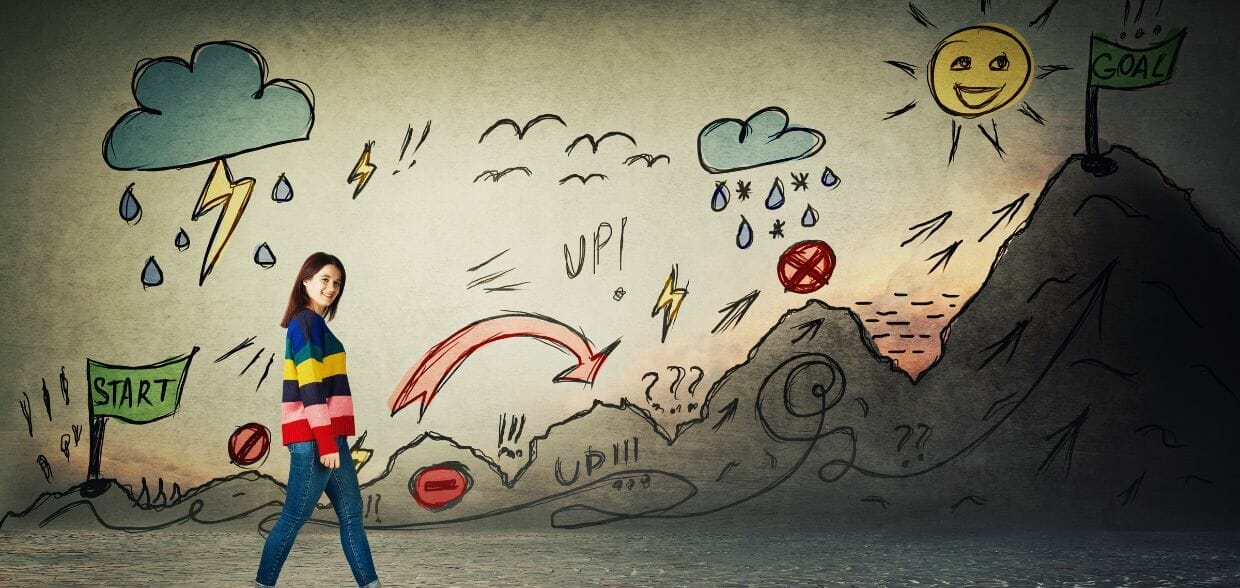Your cart is currently empty!
Tag: emotional
Developing Emotional Intelligence in Children
Emotional Intelligence means we are in tune with our emotions and use this information to deal with them in the most effective and healthy way possible.
The challenges of the past few weeks, and uncertainty of the near future is possibly some of the most emotionally difficult time you and your family have experienced. There has been a great deal of information written specifically on how to help children through this time and bring a sense of normalcy into their lives. As this process unfolds, the challenges will continue, and our “normal” will be forever changed.
To help our children and ourselves move through and grow from this time, we can give some extra thought to the concept of Emotional Intelligence; what it means, why it is important and how do we help it develop? Emotional Intelligence means we are in tune with our emotions and use this information to deal with them in the most effective and healthy way possible. It means we understand other people’s emotions and actions and can respond to them appropriately and with empathy. Research has shown Emotional Intelligence contributes to success in life. Here are some of the general concepts for raising Emotionally Intelligent children with some specific insights to the current Coronavirus situation.
Awareness Of Your Own Emotions
Knowing and recognizing your feelings as they arise.
- Can you express your feelings with appropriate words, and do you model this for your children?
- Are you tuned into your child’s emotions, and can you help them understand and identify what they are feeling?
- Do you help them label their feelings and try to understand the reason they may be feeling that way?
- Do you listen to what they are saying and how they are feeling and validate those feelings as real?
There are so many helpful articles about understanding our feelings now. Read what helps you. Take time to reflect on your own feelings and help your children reflect on theirs. Remember to keep it at their age level. Always remember there are no “wrong” feelings.
Managing Your Own Emotions
Handling feelings so they are expressed in ways that are constructive.
- Are you able to manage and control your emotions (for the most part) even during difficult times?
- Do you recognize when your child is feeling troubled and can you help them begin to learn to handle their emotions?
- Can you model positive responses and behaviors and set an example of how to calm down?
- Can you help your child learn these techniques?
Modeling all emotions for children is helpful. They can know and understand that parents also get sad, angry, and upset but also need to know and see that parents can manage these emotions in constructive ways. Make a point to show your child positive examples of this in real life, books, movies, or TV. You and your family can also work through these difficult times and let the children help come up with ideas of what to do to best handle emotions.
Motivating Oneself
Directing your emotions toward accomplishing goals and overcoming obstacles.
- Do you help your child gain confidence in situations that are challenging?
- Do you share in the interests of your child and help them explore and develop their skills and knowledge in these interests?
- Do you provide age-appropriate choices for your child, so they can practice making decisions and gain confidence in their ability?
Uncertainty and disrupted routines are scary and disorienting for everyone.
- What can you do as a family to re-motivate and energize your household?
- What would be a big project your children would get excited about that you can create and work to feel productive and build skills and a sense of accomplishment?
Empathy For Others
Being sensitive to others’ feelings and perspectives.
- Do you help point out how others might be feeling in real life, as well as in books and TV shows?
- Do you use opportunities to set an example as to how to connect with another person and show compassion?
- Do you teach your child how to treat you and other family members with compassion?
Talk to your children about how this situation impacts family members in different ways, then with your children work to understand and help others feel better. In doing so, it gives your child a sense of control and understanding of the importance of helping others.
Handling Relationships
Being socially aware in managing your own emotions and responding to others.
- Do you focus on making sure your child builds secure, healthy attachments with other children and adults?
- Do you help to explain what to expect or what went wrong with an interaction and how they might handle it the next time?
- Do you demonstrate strong emotional connections by showing empathy and compassion in daily life?
- Do you participate in age-appropriate play to help your child understand important concepts such as taking turns, and being a gracious loser or winner?

What Is Resilience?
Resilience, the ability to adapt, tolerate stress, and bounce from failure and adversity, is an invaluable inner strength and a crucial determinant of ultimate success. The strength of resilience can transform inevitable life struggles into opportunities for growth. Even though this strength can be honed throughout adulthood, intentionally cultivating resilience from a young age elevates children’s moods, and protects them from adversity by increasing their stress tolerance and reframing how they view obstacles.
Emotion regulation, the ability to identify feelings and manage them appropriately, is the first step in building resilience. Switching schools and having difficulty making friends can affect some children so much that it rocks their whole family’s lives. Without proper instruction, young children cannot determine whether a situation calls for a big or small emotion. curaJOY’s evidence-based training programs instruct your child on the life skills and emotional intelligence needed to succeed beyond the classroom.

How Pursuing a Quest Can Bring Purpose to Your Life
In 2002, I walked into a cafe, laptop in hand, to begin a grand adventure.
My adventure did not involve swords, dragons, or golden cups; it didn’t require me to hike the Appalachian trail or steer a boat solo across the world. All I had to do was sip a cappuccino and tap away at my keyboard. After years of detour as a corporate lawyer, I was finally allowing myself to reach that mythical state of being I’d dreamed of since age four: becoming “a writer.”
Believe me when I tell you that I had no idea I would ever publish a best-selling book. My goal was simply to publish something— anything —by age seventy-five. That took the pressure off and put me in a state of near constant flow, and occasional bliss. I wrote a play, a memoir, poetry, and half a novel.
After three years, I started writing Quiet and knew instinctively that this was the one.
But the adventure began long before Quiet and its runaway success. The adventure was the simple act of trying to become a writer in the first place.
In September 2014, my friend Chris Guillebeau came out with a wonderful new book . A book about quests and adventures and about how doing that big crazy (or quiet and intimate) thing you’ve always dreamed of may be the best thing you’ll ever do.
I’ll let Chris tell you all about it…
How Pursuing a Quest Can Bring Purpose to Your Life
by Chris Guillebeau
We all like to adopt habits and make choices that improve our lives—or at least we like the idea of doing so. Small changes can lead to big results, whether it’s being mindful about what we eat or trying to get an extra hour of sleep. Improvement is good.
But what if there’s something bigger that you could do…something that would fundamentally change your life for the better? After thinking carefully about what you enjoy doing and what you find most meaningful, maybe you should think about making that thing the focus of your daily life for years to come.
Perhaps you should consider a quest .For the past ten years, I’ve been pursuing a grand adventure . Even as an introvert (or perhaps because I’m an introvert), I’ve always loved travel, whether it’s exploring new cities and losing myself in foreign markets or heading into a small village after an extended bus ride from a larger hub. After going to a bunch of places, I decided to create structure around those discoveries. Instead of just traveling for fun, I’d turn it into a mission: I’d attempt to visit every country in the world.Every country, no exceptions—and in case you’re wondering, there are 193 […]





